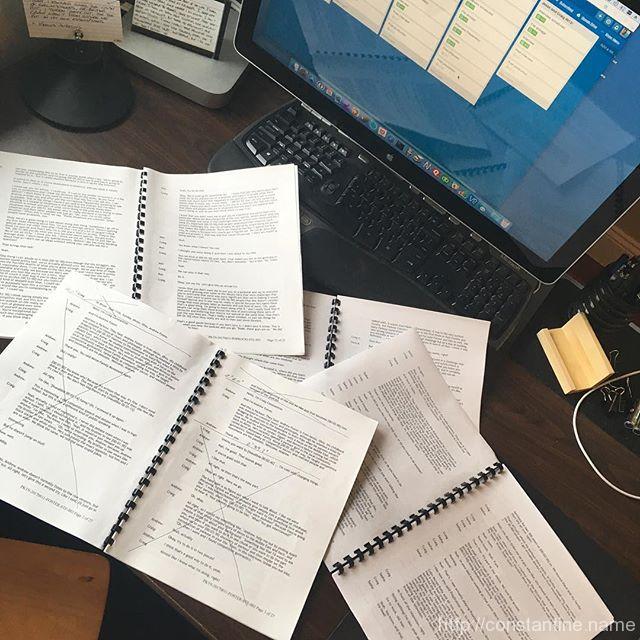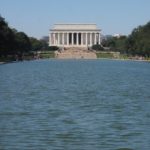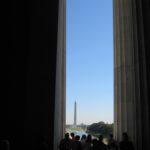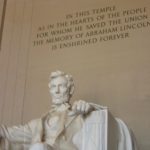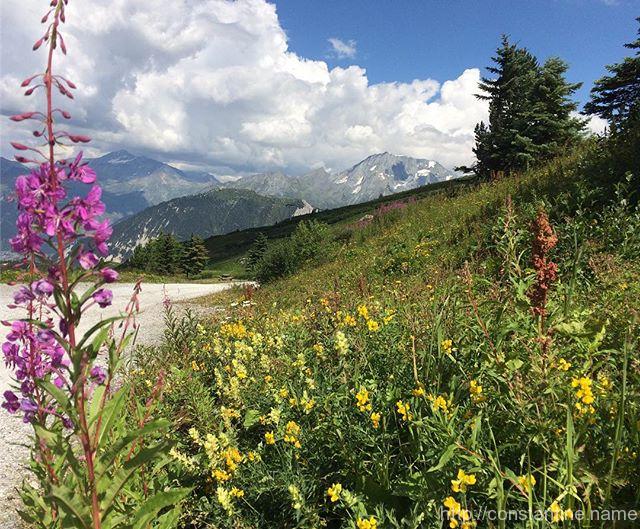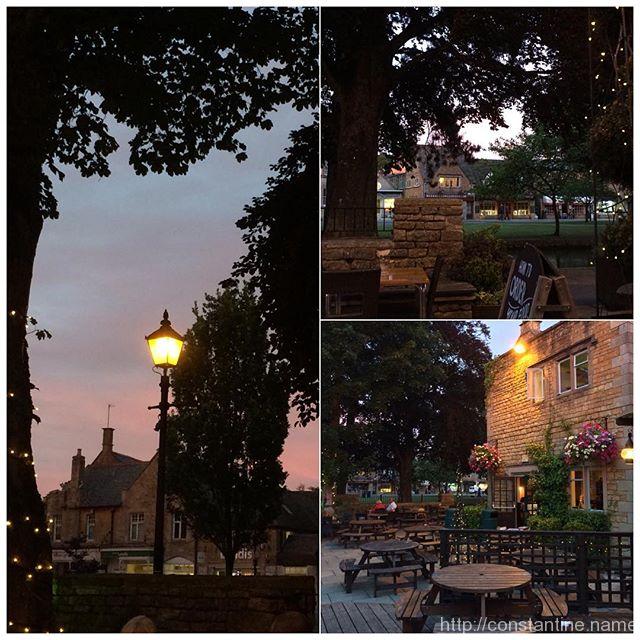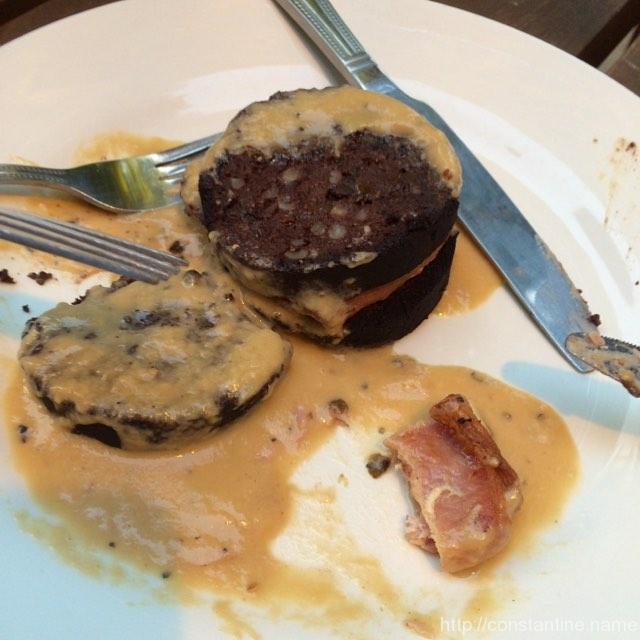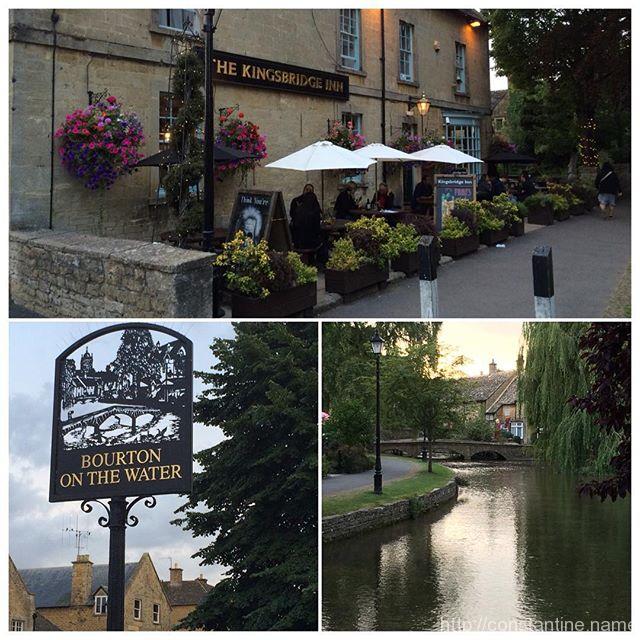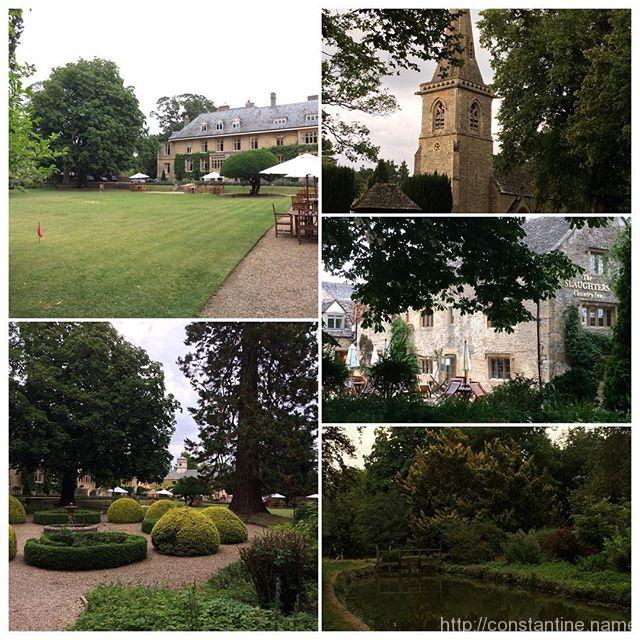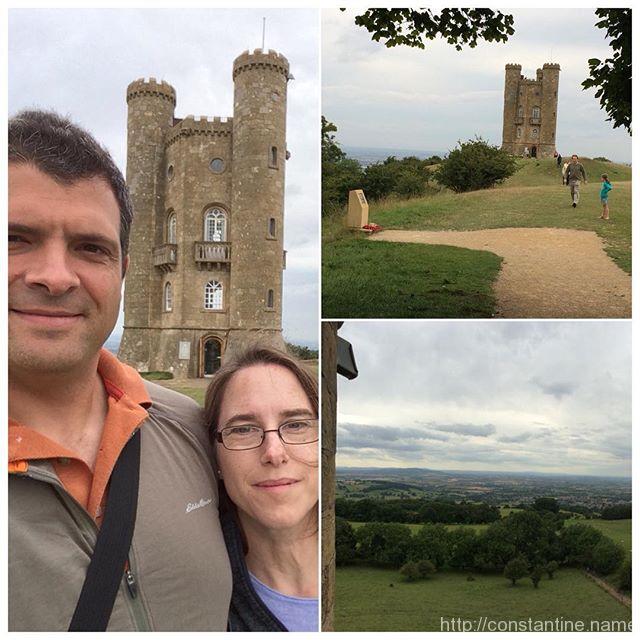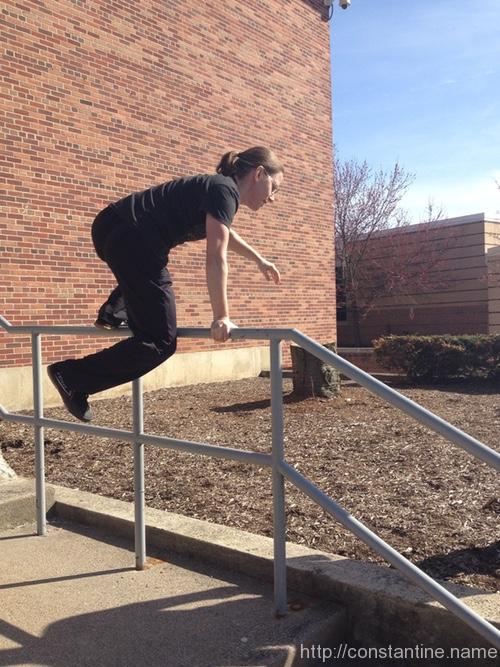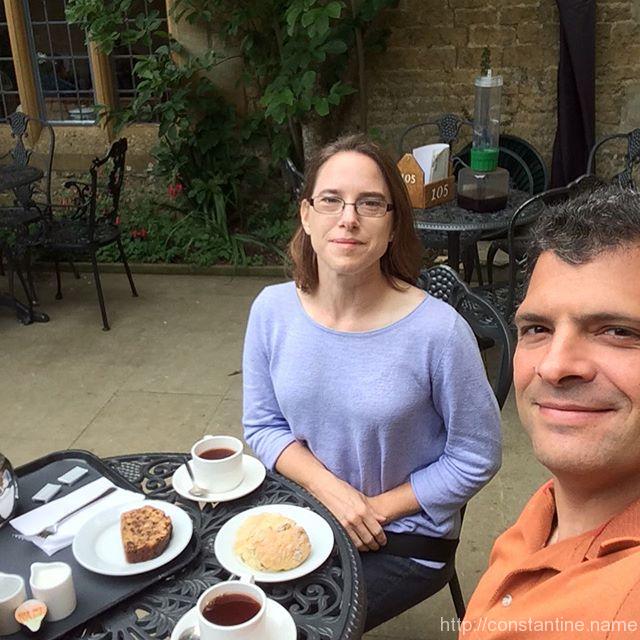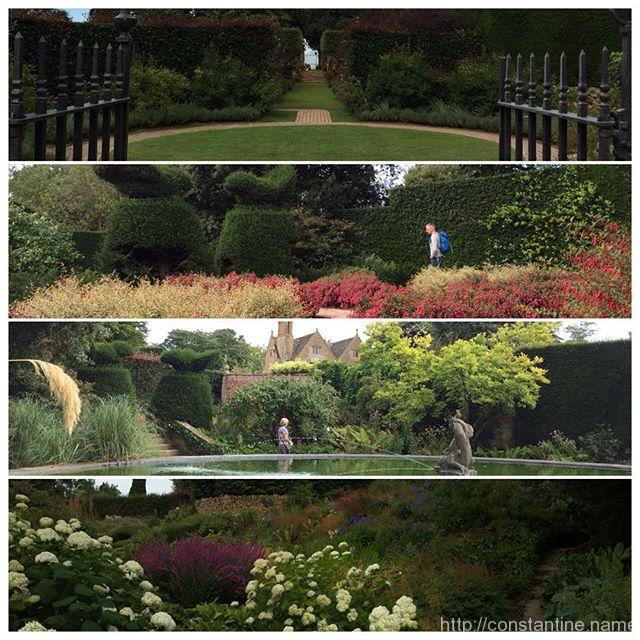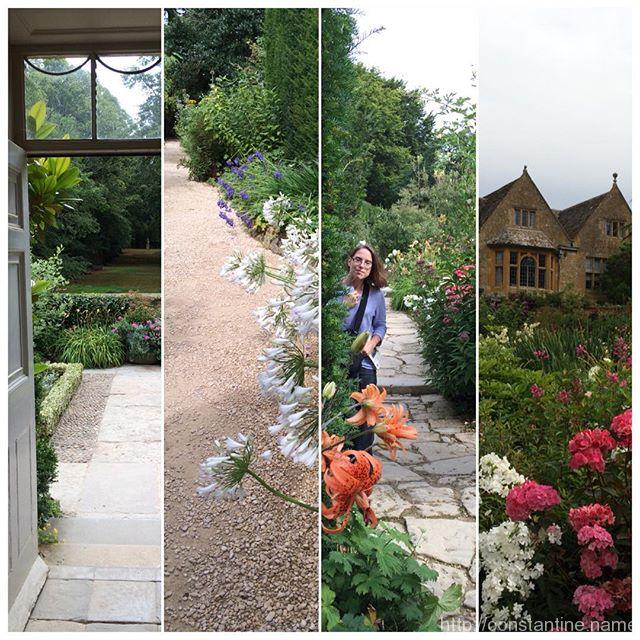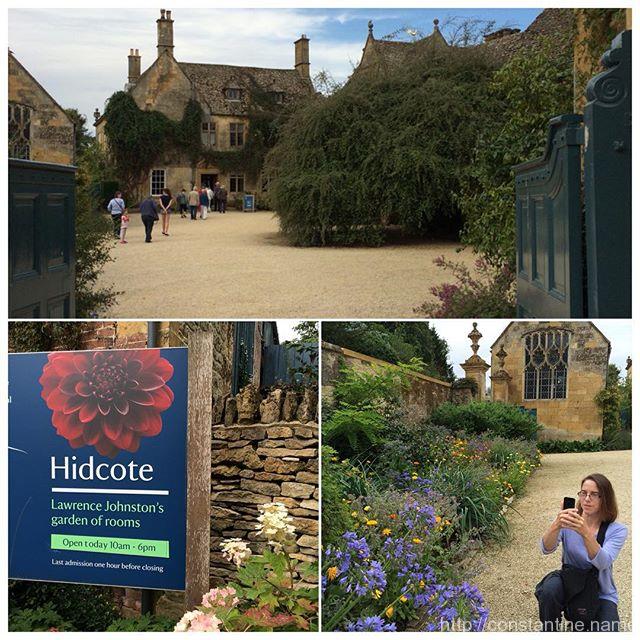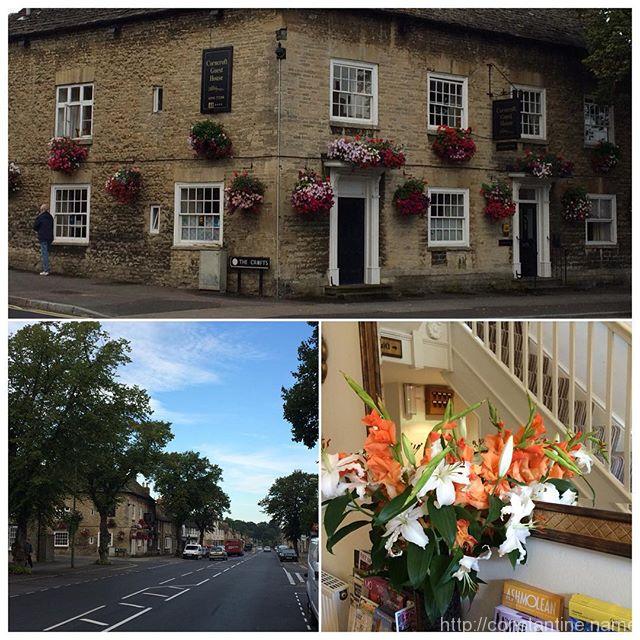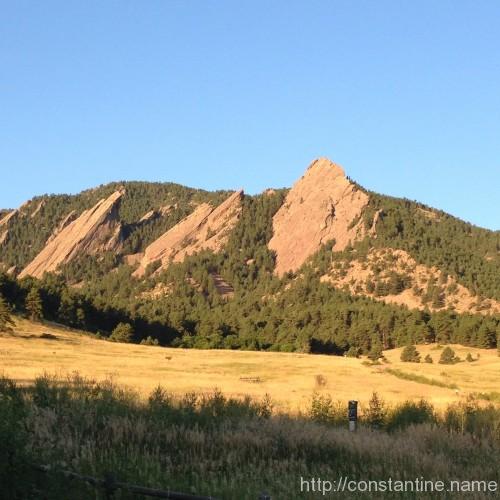A good traveler has no fixed plans, and is not intent on arriving.
~ Lao Tzu
A traveler’s mindset is the foundation for being a successful traveller and for being a good guest. I didn’t set out to develop any particular mindset when I began traveling. I simply started traveling, and only much later did I realize my mindset had changed.
In my Travel Gear series, I describe my habit of reviewing after each trip. While I began by reviewing the things I had packed for each trip, I soon realized I was spending more time thinking about what had gone well, and not so well. As I examined my mindset, I was drawn to experiment and refine, to try more challenging trips, and to push my comfort zones.
Which brings me to my traveler’s mindset:
Plan
Be flexible
Be positive
Move forward
Slow down
Plan
To be good at planning requires knowledge, but not simply knowledge of my destination. Rather, I discovered it was most important to have knowledge of my own strengths and weaknesses. For the things I am good at, the situations where I’m comfortable, in these areas I can do less planning. But in areas where my skills are weak, or situations where I’m uncomfortable, there I need to focus my planning.
Here’s an example of a strength for me: I’m not a picky eater and I have no dietary restrictions. So I never worry about food, and I hardly ever plan meals; Wherever I travel, people eat and there is food. (I’m happy to fend for myself, help cook, or team up with others.) So in the realm of food, a sufficient level of planning for me, is to carry a plastic spork.
Here’s an example of a weakness: It bothers me when I’m late for scheduled things, or when I miss out on things because of transportation. That it bothers me is my weakness. Until I can overcome that weakness, I try to avoid transportation issues. That means I prefer to be responsible for my own transportation whenever possible. I’ll be the person who coordinates buying the plane tickets, figures out the train schedule, or rents the car.
The next component of good planning is to know my bookends. In any trip, there are firmly scheduled components, such as major transportation legs, or an event being attended. Bookending is the idea of planning out as much of the time and actions leading up to the scheduled item. Once I’ve planned my bookends, I’m free to do any level of planning — including “none” — between the bookends.
After the bookends I search for unknowns. This is basically a litany of questions that I’ve learned to ask myself: Do I have my passport, visa, and host’s address for immigration control? Do I need foreign currency, working credit card, or cell phone data plan? Does my phone even work on the local cellular system? Have I sorted my transportation from the airport? If my phone dies, what must I have on paper (plane ticket, host’s address for immigration, host’s phone number)? Do I speak the local language, or do I have some needed phrases written down that I can point to when searching for help? Do I know the weather? Do I know the laws and customs? Do I have the necessary electrical adapters? The more I travel, the more I think to ask myself, and the more things I might plan for to avoid problems.
At this point I have a skeleton plan. I can convert my bookends into a basic itinerary and pass that to my hosts, and to my family members (who invariable love that they will know where I will be.) I can use my skeleton plan to coordinate with others traveling with me. People with less travel experience, who couldn’t setup a trip of the same complexity level, will be able to join in; They can match transportation (plane tickets, etc.) to my bookends and coordinate with the same (or different) hosts, and so on.
Finally, when talking to my hosts, showing that I’ve done some planning helps them understand I’m not going to show up and expect them to take care of my every need. I can also ask open-ended questions like, “I’ll be in city on date, with some free time. Any suggestions?”, to fill in other parts of my travels.
Be flexible
I should be accepting of change. That’s obvious, right? But I have too often been the stick in the mud, and I have too often seen inflexible people cause friction. The bookends in my plans are the inflexible parts of my travels, and knowing them provides the security that enables me to relax and be flexible the rest of the time.
I try to never be that person who responds negatively to suggestions without having an alternative. My personal rule is to never say, “no,” to a suggestion unless I have an alternative. I had to learn to either get off my lazy butt and go with the flow, or to take the initiative to plan and suggest. Meal planning is the easiest example. When I get hungry, I don’t wait for someone to say, “lets get food, how about X?” and then I’m all, “No. Meh. No,” to each of their ideas. Instead, when I get hungry, I make up a plan for food, and then I say, “I’m getting hungry. What about X?” Maybe there’s another plan they had in mind, and I get to practice being flexible and rolling with their plan.
I think of planning as a sort of currency: If I want to have an opinion on the question at hand, then I have to buy-in with some planning. If I’ve done no planning, then I’m not entitled to an opinion, and I should be maximally flexible to adapt to the plans of others.
At the same time, I had to learn to avoid “false flexibility.” That’s when I used to agree to go with the plans of others, but then quietly — or worse, passive-aggressively, or even openly — dissing the experience once underway. An example of this, which I see too frequently is when people think dinner is going to be an inexpensive, quick meal, but the group’s opinion shifts and everyone suddenly heads to the expensive brew-pub. People then get grumpy about the expense. Too bad! Learn to be flexible. If money is that important, then you had your chance to counter-suggest; “Hey guys, I need to eat on a budget. Can we get food for like $15?” (And really, if you want to have an I-need-to-eat-on-a-budget opinion, you should buy-in by doing some planning to find a possible spot.) But once you’ve agreed to go with the plan, you should spend the money and enjoy it; Or peel off entirely. Never be the passive-aggressive jerk who goes along and drags his feet the entire time.
The easiest way for me to begin learning flexibility was to directly plan to be flexible. I sometimes plan blocks of time intentionally left open. (“Friday, until bookend begins at time, I will wander around the city.”) This taught me to be comfortable with big swaths of unplanned time. It taught me to be aware of my surroundings and helped me learn to adapt to the opportunities that arise.
Planning to be flexible also has a subtle effect on my hosts and others traveling with me. If I say, “I’ve nothing planned today.” This creates an unspoken, subtle suggestion that perhaps I’m hoping my host will fill in some things for me to do. The unwritten sub-text might be, “I’ve nothing planned today, can you entertain me?” But instead, if I say, “I’ve planned to spend the day wandering around the city,” this still leaves open the opportunity for my host to suggest activities, but it also makes it clear that it’s equally fine to simply leave me to my own devices.
Be positive
It took me a long time to develop a positive attitude. The big turning point was when I came to understand the Fundamental Attribution Error. The error is that we tend to attribute the causes for other people’s actions to themselves, (that driver cut me off because he’s an aggressive narcissist,) while tending to attribute the causes for our own actions to external circumstances, (I cut you off because I’m making up time lost to some unavoidable delay I encountered.)
There’s debate in psychology circles wether this attribution error is “fundamental” in the sense of being an inherent trait of how we think, versus just being a very common way of thinking. Regardless, I found it was pervasive in my thinking, and practicing thinking about what I was thinking was a fruitful exercise.
Lessons cautioning against this sort of attribution error appear in many places, including:
Be kind, for everyone you meet is fighting a great battle.
~ Plato
And from Epictetus:
Someone bathes in haste; don’t say he bathes badly, but in haste. Someone drinks a lot of wine; don’t say he drinks badly, but a lot. Until you know their reasons, how do you know that their actions are vicious?
As I traveled more frequently, I learned the power of positive thinking. Initially I began by using sugar-coating positive thinking, “I’m going to have fun!” But that is weak medicine. Over time, through intentional and conscious practice, I learned to use positive thinking to dig deep for actionable items: What can I do to solve this problem? What is good about the current situation? What can I say now that would express my appreciation for what this person has done? What can I do with my spare time now, which would create a fun opportunity for all of us later?
Being positive also appears in the way one commits to choices made: not the choices themselves per se, (to go to this event or not, to take on a responsibility or not,) but the way in which I express those choices. Sure, making choices takes time, as I have to consider options, weigh existing responsibilities and allocate free time. But, when it comes time to choose:
Everything in my life should be a, “No,” or a, “Hell yes!”
Simply saying, “Yes,” is not commitment; it is in fact a, “No.” Saying, “Yes,” but not realistically planning, is in fact a, “No.” Unrealistic planning, not allocating money or not allocating time, are more variations of, “No.” On the other hand, “Hell yes!” is the passion and fire that make life worth living. That is what I mean when I say I must be positive with my decisions.
Move forward
I tend to move forward, towards the next scheduled thing. This cultivates an attitude of forward momentum and is closely related to the idea of bookending. Generally, wherever I am, if there’s no specific reason to stay, I’ll move forward, and the closer I get (in time and space) to the next thing, the more I relax and slow down.
For me, 15-minutes-early is, “on time,” and on-time is “late.” Of course, it doesn’t have to be exactly 15 minutes; the longer the journey, the earlier I plan to be. Something like 20% seems to work well — so an hour early on a 5 hour drive. And I don’t mean “the map engine says five hours, so I’ll leave six because I want to stop for lunch.” I mean, five hours on the road, plus an hour for lunch etc, that’s a six hour journey. Then I add 20%, leaving about 7 hours of travel time. When you’re padding in this much time, everything becomes a leisurely journey!
When I travel with others I try (gently) to get them motivated and moving early enough. Only then do we find we have enough time to move at a leisurely pace — to pause for a cup of coffee, to stroll down the side streets — without worrying about wasting too much time.
Once I started thinking about momentum, and moving forward, I found I was visualizing my next actions. “I should do laundry. I should get up early tomorrow and do my laundry. I should shower now and go to bed, so I can get up early and do my laundry.” Invariably, the more I think ahead, and move forward — physically move towards the next thing, or just pick off tasks I can do now, rather than later — the more I find myself with free time and flexibility.
Slow down
Which brings me finally to the best part: Slow down, leave space and enjoy life.
I find I have a certain pace to my normal life, I know how much I can pack into a day, and how long I need to get from one place to another. But when I’m traveling, I purposely plan a slower pace. First of all, things often take longer than I expected, so things work out better when I’ve expected that by leaving extra space and time in my schedule. When things go as planned, or take less time then expected, I suddenly have time to notice things, or go on little adventures.
My entire traveler’s mindset leads to this, “slow down, leave space and enjoy life” end-goal. Unexpected conversations with new friends, a 10 minute walking tour of a neighborhood that’d I’d never have known to plan for, a spontaneous meal, a suggestion by someone that I’d have missed if I hadn’t been relaxing with free time.
In short, without my mindset, I’d miss all the good stuff, and end up simply travelling.
ɕ


